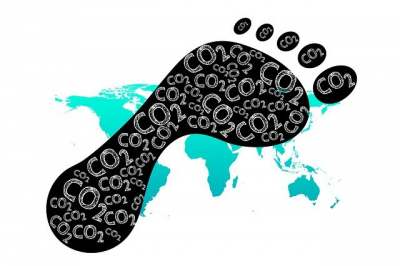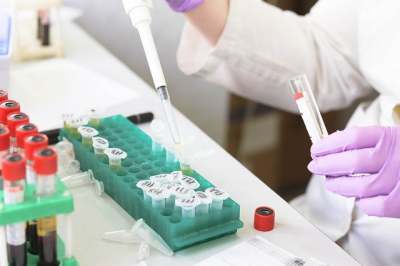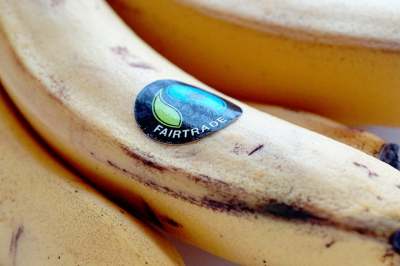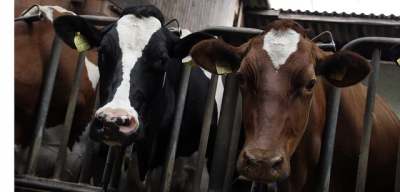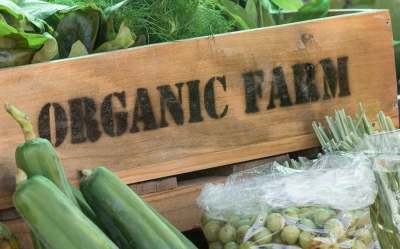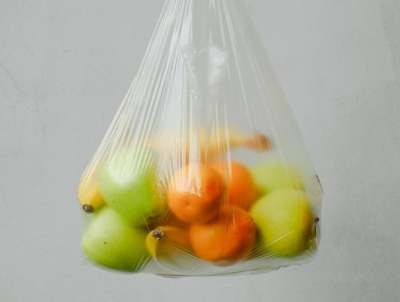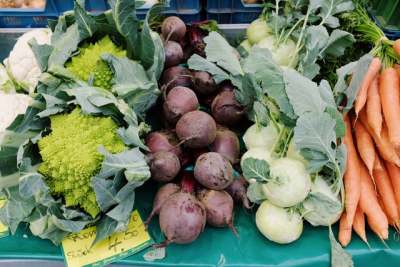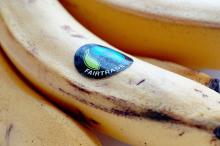Fair trade (two words): when producers in developing countries are paid a fair price for their work by companies in developed companies. A fair price should allow them to cover their basic needs, such as food, education and healthcare.
Organisations like the Fairtrade Foundation were established to help ensure that fair prices were paid and fair conditions ensured for workers, as well as to protect producers from big fluctuations in market prices.
FairTrade certified: indicates that a product has been traded and produced in line with standards of the Fairtrade Foundation or the World Fair Trade Organisation.
Fairtrade standards include a minimum price for producers to guard against price fluctuations, and a premium on top of the market price. They also include some protections for workers’ rights and the environment.
Read our article about why buying fair trade is important.
Fixed cut-off date (FCOD): a date, included in a company’s policy, after which none of the ingredients used by the company have been tested on animals. For example, if the FCOD was January 2003, the company could not use any ingredients tested on animals since this date.
Almost all ingredients in cosmetics have been tested on animals at some stage in their development. But companies with FCOD thereby discourage current or future animal testing.
Flexitarian: someone who eats a largely meat-free diet or often opts for plant-based choices. Flexitarians are usually motivated by environmental concerns.
See our guide to meat free sausages and burgers for some plant-based alternatives to meat and fish.
Food sovereignty: an approach to food that was originally developed by smallholder farmers in the global South but now drives a global movement comprised of farmers, growers, consumers and activists. At its core is the belief that communities should have the right to control the way food is produced, traded and consumed.
Food sovereignty “recognises the right of peoples to food that is healthy and culturally appropriate and that is produced through ecologically sound and sustainable methods, as well as their right to define their own food and agriculture systems”. The six foundational pillars of food sovereignty are:
- focuses on food for people
- values food providers
- localises food systems
- puts control locally
- builds knowledge and skills
- works with nature
Food justice: a concept and movement that believes the benefits and risks involved in producing, distributing and consuming food should be shared fairly across all segments of society, ensuring access to healthy and culturally appropriate food for all. It is based on the right of communities to control their food and agriculture systems.
Free Trade Agreement: also known as a trade agreement or trade deal, it is a deal between two or more countries that determines policies on a wide range of economic and political areas including tariffs and quotas on imports and exports, whether government are allowed to subsidise industries, how they are allowed to regulate production methods to protect the environment, animals and workers, and whether they need to open publicly owned industries to competition.
Many free trade agreements have gone much further than most people would expect to be in a trade agreement, and have effectively determined many domestic policies.
Freedom of Association: the right to form and join organisations of one’s own choosing, including trade unions and political parties. Freedom of Association is recognised as a fundamental human right by the ILO Conventions (International Labour Organizations) and The Human Rights Act.
Many large multinationals such as Amazon are being exposed for their anti union tactics, as this article highlights.
Greenwashing: the practice of making unsubstantiated or misleading claims about the environmental or social benefits of a product or company practice. Some of the most famous examples of greenwashing are Chevron’s ‘People Do’ campaign, promoting its environmental works in the 1970s and 80s; and PepsiCo’s more recent claims to have moved towards sustainable palm oil sourcing.
Read our A to Z on social and other greenwashing.
GMOs: Genetically Modified Organisms, whose genetic material has been artificially manipulated in a laboratory through genetic engineering. Crops are often genetically engineered to withstand a particular type or brand of pesticide, for example, so that it can be used to kill unwanted insects without affecting the plant.
There is much debate about the safety and environmental impact of, and yields from, GMO crops. They have also been criticised for their impact on farmers – locking them into costly relationships with agribusinesses that own the patent for the genetically-engineered crop.
Read about why buying GMO free is important.
Human-relevant testing: tests that check the safety of a finished product or ingredient without the use of animals – also known as ‘animal-free testing’.
These include ‘in vitro tests’, which use cells or other organic matter outside of their usual biological context for example in test tubes; and ‘in silico tests’, which use computer modelling. Such approaches are increasingly referred to as ‘human-relevant tests’, as their use biological matter or information from humans, rather than animals, makes them more relevant to the human body and human responses.
ILO Conventions: 190 laws that aim to improve the labour standards of people around the world. Adopted by the International Labour Organization, the ILO Conventions include eight fundamental conventions that cover areas such as child and forced labour, equal pay and right to organise and collectively bargain.
All countries that are members of the ILO must adopt the eight fundamental conventions, and may choose to ratify any of the other 182 laws.

